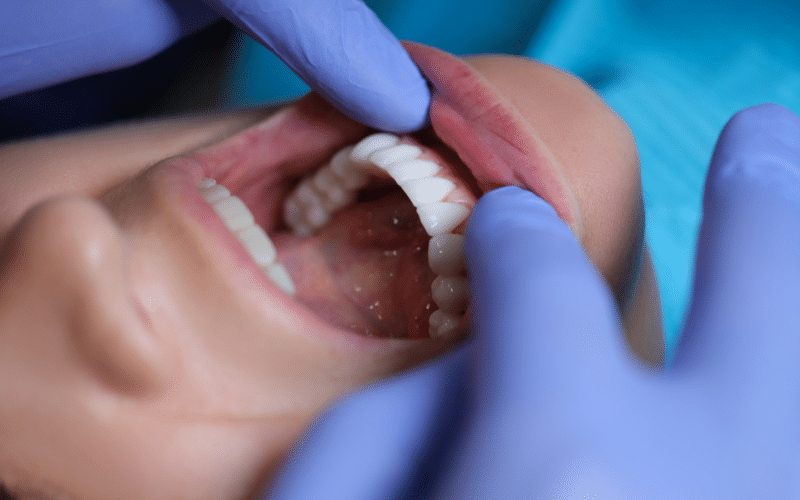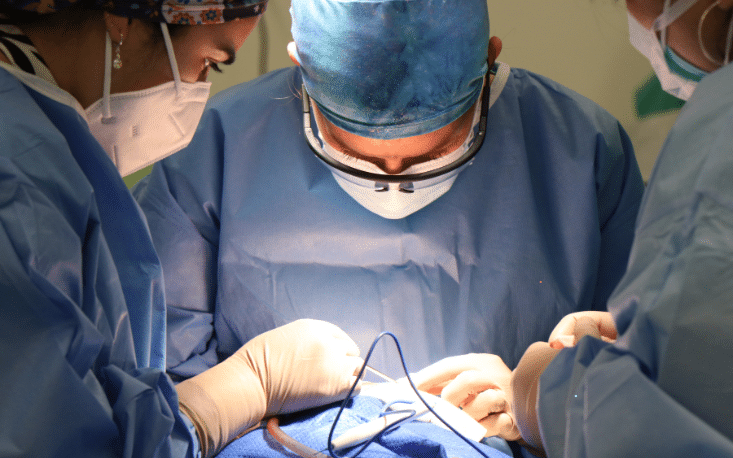ONLINE SCHEDULING AND VIRTUAL CONSULTS AVAILABLE

Types of Oral Surgery: Exploring Common Procedures and Their Purposes

As oral surgery continues to play a pivotal role in modern dentistry, individuals seeking optimal oral health and aesthetic enhancement are increasingly turning to these advanced procedures.
Understanding the intricacies of oral surgery in Plantation—whether for wisdom teeth removal, dental implants, or corrective jaw surgery—is crucial for informed decision-making
In this comprehensive guide, we’ll embark on an enlightening exploration of common oral surgery procedures and their profound impact on oral health and well-being. From tooth extractions to dental implants, jaw surgery to gum surgery, and beyond, we’ll unravel the mysteries of these transformative interventions, shedding light on their significance and benefits.
Read on to navigate the complexities of oral surgery, empowering you with the knowledge and insights needed to start your oral health journey with confidence and clarity.
Understanding Oral Surgery
Oral surgery encompasses a diverse array of procedures aimed at diagnosing and treating conditions affecting the oral cavity, jaws, and facial structures. From routine extractions to intricate reconstructive surgeries, oral surgeons specialize in addressing a wide spectrum of dental and facial concerns.
Routine Extractions
Routine extractions involve the removal of teeth that are decayed, damaged, or impacted, often due to overcrowding or orthodontic treatment. While extraction may seem straightforward, oral surgeons employ precision techniques to ensure optimal outcomes and minimize discomfort for the patient.
Complex Reconstructive Surgeries
On the other end of the spectrum, complex reconstructive surgeries encompass procedures such as bone grafting, facial trauma reconstruction, and corrective jaw surgery. These advanced interventions require specialized expertise and often involve collaboration with other medical professionals to restore form and function to the oral and facial structures.
Importance of Oral Health
Oral health is intricately linked to overall well-being, influencing aspects such as nutrition, speech, and self-esteem. Timely intervention through surgical procedures is crucial in addressing oral health issues before they escalate into more significant concerns.
Nutrition and Digestion
Proper chewing function facilitated by healthy teeth and gums is essential for efficient digestion and nutrient absorption. Oral surgery interventions, such as dental implants or gum disease treatment, can restore oral function and support overall nutritional health.
Speech and Communication
Oral health plays a vital role in speech production and communication. Conditions such as missing teeth or jaw misalignment can impact speech clarity, affecting an individual’s ability to express themselves effectively. Oral surgery in Plantation aims to address these issues, improving speech articulation and confidence.
Through a comprehensive understanding of oral surgery and its significance in promoting oral health, individuals can make informed decisions to maintain a healthy smile and overall well-being.
Common Types of Oral Surgery
Oral surgery encompasses a diverse range of procedures tailored to address various dental and facial concerns. From routine extractions to intricate reconstructive surgeries, each type of oral surgery in Plantation serves a specific purpose in restoring oral health and function.
Let’s explore some of the most common types of oral surgery and their significance in promoting overall well-being.
Tooth Extractions:
- Tooth extractions are performed for various reasons, including severe decay, infection, crowding, or trauma.
- Wisdom teeth removal is a common procedure to address impacted or problematic third molars that can cause pain and dental issues.
- Impacted tooth extractions involve removing teeth that fail to emerge properly through the gum line.
- Extractions for orthodontic purposes may be necessary to create space for proper alignment of teeth during braces treatment.
Dental Implants:
- Dental implants serve as a permanent solution for replacing missing teeth, offering stability and functionality similar to natural teeth.
- The surgical process involves implanting a titanium post into the jawbone, which fuses with the bone over time to provide a sturdy foundation for a prosthetic tooth.
- Dental implants not only restore oral function but also enhance aesthetics by preserving bone structure and preventing facial sagging.
Jaw Surgery (Orthognathic Surgery):
- Orthognathic surgery is recommended for correcting significant functional and structural irregularities of the jaw.
- Common indications include malocclusion (misalignment of the teeth), temporomandibular joint (TMJ) disorders, and facial asymmetry.
- Orthognathic surgery aims to improve bite alignment, chewing function, and facial harmony, ultimately enhancing both oral health and aesthetics.
Gum Surgery (Periodontal Surgery):
- Periodontal surgery plays a crucial role in treating gum disease and preserving periodontal health.
- Procedures such as gingivectomy, flap surgery, and gum grafting are performed to restore gum tissue integrity and prevent tooth loss.
- Periodontal surgery aims to eliminate infection, reduce pocket depths, and promote gum tissue regeneration for improved oral health.
Oral Biopsies:
- Oral biopsies are essential for diagnosing oral lesions and detecting oral cancer at an early stage.
- The biopsy procedure involves the surgical removal of a small sample of tissue from the affected area for pathological examination.
- Early detection through oral biopsies enables prompt treatment initiation, improving the prognosis for oral cancer patients.
Oral and Maxillofacial Trauma Surgery:
- Oral and maxillofacial surgeons specialize in managing traumatic injuries to the face and jaw resulting from accidents, sports injuries, or assaults.
- Common types of facial fractures include fractures of the nose, jaw, cheekbones, and orbital bones.
- Surgical techniques such as fracture reduction and stabilization are employed to restore facial aesthetics and function.
By understanding the various types of oral surgery in Plantation and their respective purposes, individuals can make informed decisions about their oral health and seek appropriate treatment when needed.
Benefits and Outcomes
They offers a myriad of benefits that extend beyond mere aesthetics, encompassing improved oral function, enhanced facial harmony, and long-term oral health. Let’s delve into the transformative outcomes that oral surgery procedures can achieve for individuals seeking optimal oral well-being.
Improved Oral Function:
- Oral surgery plays a pivotal role in restoring essential functions such as chewing, speech articulation, and bite alignment.
- Procedures like tooth extractions, dental implants, and jaw surgery can address underlying issues that compromise oral function, allowing individuals to enjoy a comfortable and efficient chewing experience.
- By correcting misalignments and structural irregularities, they enhance speech clarity and promote overall oral function, contributing to an improved quality of life.
Enhanced Aesthetics:
- Beyond functional benefits, oral surgery procedures have a profound impact on facial aesthetics, enhancing facial harmony and symmetry.
- Dental implants, for instance, not only replace missing teeth but also preserve bone structure and prevent facial sagging, resulting in a youthful and natural appearance.
- Orthognathic surgery can correct facial asymmetry and imbalances, creating a balanced and proportionate facial profile that instills confidence and boosts self-esteem.
Long-Term Oral Health:
- Perhaps most importantly, this plays a crucial role in preserving long-term oral health by addressing underlying issues and preventing future complications.
- Periodontal surgery helps mitigate the progression of gum disease, reducing the risk of tooth loss and systemic health problems associated with untreated periodontal disease.
- Early detection and treatment of oral lesions through procedures like oral biopsies are instrumental in preventing the advancement of oral cancer and improving patient outcomes.
By focusing on the holistic benefits of oral surgery in Plantation, individuals can achieve not only a beautiful smile but also optimal oral function and long-term oral health. Through informed decision-making and proactive oral care, individuals can reap the transformative rewards of oral surgery for years to come.
The realm of oral surgery is vast and multifaceted, offering transformative solutions for a wide range of dental and facial concerns. Whether seeking to restore oral function, enhance aesthetics, or preserve long-term oral health, oral surgery procedures hold the promise of a brighter, healthier smile. For those considering oral surgery in Plantation, informed decision-making and proactive oral care are paramount for optimal oral well-being.





